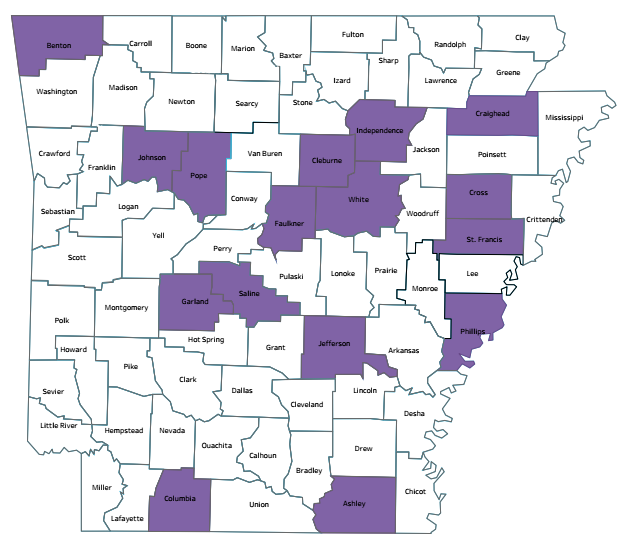Juvenile Drug Treatment Court is a voluntary, six-to-twelve month, multi-phase intervention program designed for delinquent youth involved in the juvenile justice system who have been diagnosed with a substance use disorder and are at increased risk of reoffending. Juvenile Drug Treatment Court utilizes evidence-based, developmentally appropriate treatment and supervision measures to assist juveniles and families. Juvenile Drug Treatment Court involves frequent court appearances, random drug/alcohol testing, intensive community supervision and case management, and extensive substance use disorder treatment, including individual, family, and group counseling.
Juvenile Drug Treatment Courts aim to divert juveniles from incarceration and reduce substance use disorders amongst youth while strengthening families through treatment and community supervision efforts to improve the quality of life for juveniles, families, and the community.

Juvenile Drug Treatment Court Objectives:
1. Focus the JDTC philosophy and practice on effectively addressing substance use and criminogenic needs to decrease future offending and substance use and increase positive outcomes.
2. Ensure equitable treatment for all youth by adhering to eligibility criteria and conducting an initial screening.
3. Provide a JDTC process that engages the full team and follows procedures fairly.
4. Conduct comprehensive needs assessments that inform individualized case management.
5. Implement contingency management, case management, and community supervision strategies effectively.
6. Refer participants to evidence-based substance use treatment, to other services, and for prosocial connections.
7. Monitor and track program completion and termination.
Juvenile Drug Treatment Court Team:
A dedicated multidisciplinary team of professionals manages the day-to-day operations of Juvenile Drug Treatment Court, including reviewing juvenile's progress during pre-court team meetings and status hearings, contributing observations and recommendations within team members' respective areas of expertise, and delivering or overseeing the delivery of legal, treatment, and supervision services.
The Juvenile Drug Treatment Court team is comprised of representatives from partnering agencies involved in the program, which includes the following:
- Judge
- Program Coordinator
- Prosecuting Attorney
- Defense Attorney
- Treatment Provider
- Juvenile Probation Officer
- Law Enforcement Liaison
- School Representative
Eligibility Criteria:
To be eligible for a Juvenile Drug Treatment Court:
- The juvenile must be between the age of 14-17;
- The juvenile must have a parent or legal guardian willing to participant in the program;
- The juvenile must be charged with a delinquency offense;
- The juvenile must not have a previous conviction or pending charge for a felony offense that would require registration as a sex offender;
- The juvenile must not have a previous conviction of pending charge for a serious felony offense involving violence as defined in A.C.A. §5-4-501 (c)(2);
- The juvenile must have a moderate-to-severe substance use disorder as determined by a validated clinical assessment tool and must be clinically appropriate for the program;
- The juvenile must be identified as moderate-to-high risk as determined by a validated risk-need assessment tool; and
- The juvenile must be approved for admission by the Juvenile Drug Treatment Court team.
Juvenile Drug Treatment Courts are subject to evaluation by the Specialty Court Program Advisory Committee under A.C.A. §16-10-139.